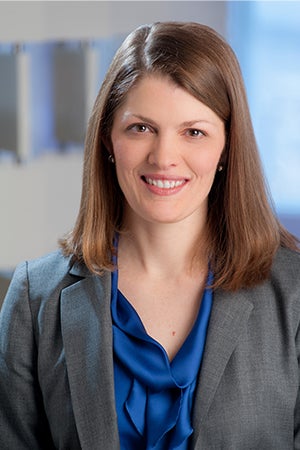 When the Tax Cuts and Jobs Act was signed into law in December 2017, it generated questions about the reformed tax code and placed a renewed emphasis on thoughtful estate planning. In times like these, Harvard is fortunate to have Cameron Casey JD ’03, a partner at Ropes & Gray LLP, as a trusted advisor on matters of charitable planning. With a Harvard Law School degree and years of experience in tax law, Casey is well positioned to address the needs of the University and its donors.
When the Tax Cuts and Jobs Act was signed into law in December 2017, it generated questions about the reformed tax code and placed a renewed emphasis on thoughtful estate planning. In times like these, Harvard is fortunate to have Cameron Casey JD ’03, a partner at Ropes & Gray LLP, as a trusted advisor on matters of charitable planning. With a Harvard Law School degree and years of experience in tax law, Casey is well positioned to address the needs of the University and its donors.
What drew you to law, and to estate and charitable planning in particular?
I discovered the world of trusts and estates when I fell into a job at U.S. Trust Company of New York after college. I really enjoyed the intersection of trust law concepts, tax planning, investment management, and of course, family dynamics. I went to law school so that I could do similar work in more of a leadership role. I love having the opportunity to work with Harvard to help the University and its donors realize their objectives. It’s a win for everyone involved.
What was your experience like as a student at Harvard Law School and how do you view Harvard now as a client?
I think of those three years as one of the wisest investments I’ve ever made. It’s incredibly gratifying to be in a position to help the Law School, and Harvard more broadly, so that more students are able to share in that experience and use it as a springboard to do exciting and meaningful work in the world.
What are the income tax ramifications of the Tax Cuts and Jobs Act as they relate to charitable giving by individuals?
It’s great news that the federal income tax charitable deduction continues to be available to individuals who itemize their deductions. By loosening certain limitations that previously applied, the new law makes the income tax charitable deduction more generous.
However, because the new law increases the standard deduction significantly, while simultaneously limiting other commonly used deductions like home mortgage interest and state and local taxes, many fewer taxpayers are likely to itemize their deductions.
But there will still be opportunities to engage in tax-smart charitable giving. For example:
- Some taxpayers may choose to consolidate gifts into a single year that they would otherwise have made over multiple years, itemizing their deductions in that one year. Donors may find donor advised funds a particularly helpful vehicle for timing their charitable gifts in this way.
- A donor who is at least age 70½ may be able to make a qualified charitable distribution (QCD) from his or her individual retirement account (IRA) of up to $100,000 in a given year to Harvard and/or other public charities (excluding donor advised funds). The amount treated as a QCD is excluded entirely from the donor’s taxable income. Donors can even treat QCDs as satisfying their required minimum distributions from their IRAs for the year.
Of course, most charitable gifts are not motivated primarily by tax savings. A great deal of research indicates that donors give to help support the programmatic mission of their charitable beneficiaries and give back regardless of the tax benefit.
The exemptions for estate, gift, and generation-skipping taxes have nearly doubled—to approximately $11.2 million per person and $22.4 million for a married couple. What are some key planning considerations for individuals and couples with estates below, and above, these exemptions?
Like most of the provisions affecting individual taxpayers, the significant increases in the inflation-adjusted exclusion from the federal gift, estate, and generation-skipping transfer (GST) taxes expire at the end of 2025. Taxpayers who continue to have federal transfer tax concerns have an opportunity in the next few years to use the increased exemption to transfer more value to their families free of gift, estate, and GST taxes. On the whole, individuals can now more easily create plans that truly reflect their objectives and values.
Whether or not a taxpayer is subject to the federal transfer taxes in the wake of the new legislation, the change in the law presents a significant change to the planning landscape, making this an important time to reconnect with one’s estate planning advisor.
Contact University Planned Giving to learn more about supporting University programs.